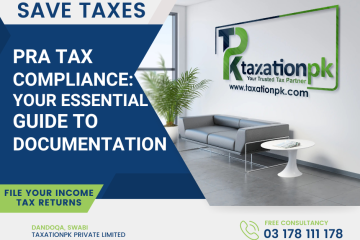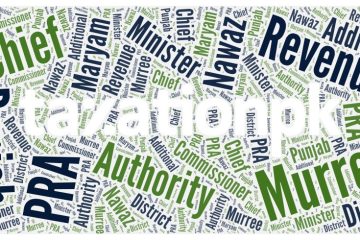Navigating the complexities of tax compliance can be challenging, and maintaining accurate records is crucial for the Punjab Revenue Authority (PRA). This article delves into the essential requirements for PRA documentation and record keeping, ensuring you operate smoothly and adhere to regulations effectively.
Issuing Accurate Tax Invoices:
- Mandatory for Taxable Services: When providing taxable services, you must issue a numbered and dated tax invoice. This document serves as the foundation for calculating and paying your tax liability.
- Essential Information: Ensure your invoices include the following details:
- Service provider name, address, and registration number
- Service recipient name, address, and registration number (if applicable)
- Description of the service(s) provided
- Value of the service before tax
- Tax amount
- Total value of the service (including tax)
- Format and Authentication: The PRA may specify a specific invoice format and authentication procedures through official notifications. Stay updated to comply with these requirements.
- Electronic Invoicing: The PRA may mandate electronic invoicing for certain categories of businesses. Be prepared to adopt this method if needed and follow the prescribed procedures.
Maintaining Detailed Records:
- Record Keeping Obligations: As a registered person or someone required to pay PRA tax, you are obligated to maintain comprehensive records of your taxable activities (including exempt services) at your business premises or registered office.
- Record Categories: These records should encompass:
- Services provided, including exempt services, with details like description, quantity, value, recipient information, and tax charged
- Goods and services received, including exempt ones, with details like description, quantity, value, supplier information, and tax charged
- Imported goods with details like description, quantity, value, and import tax paid
- Double-entry accounts
- Bank statements and banking instruments
- Inventory records, utility bills, salary and labor bills, rent deeds and agreements
- Records required under other relevant laws
- Any additional records specified by the PRA
- Business Bank Accounts: The PRA may mandate specific business bank accounts for receiving and making payments related to taxable services. Adhere to these requirements to ensure proper tax collection.
- Software for Record Keeping and Reporting: The PRA may prescribe or approve software for electronic invoicing, record maintenance, and tax return filing. Utilize these tools to streamline compliance and ensure accuracy.
- Auditable Accounts: If your accounts are subject to audit under the Companies Act, 2017, you must submit audited accounts with a certificate confirming tax payment and any deficiencies.
Record Retention and Production:
- Retention Period: All records and documents must be retained for at least eight years after the relevant tax period ends. Additionally, retain records until the final decision in any proceedings related to your tax affairs.
- Production of Records: Upon request by an authorized PRA officer, you are obligated to produce any relevant records or documents in your possession or control, including electronic data. Cooperate fully with such requests to ensure smooth compliance checks.
Remember:
- Accurate Documentation: Maintaining accurate and complete records is crucial for calculating tax liability and complying with PRA regulations.
- Stay Updated: Regularly check for updates on PRA guidelines and requirements to ensure you are following the latest regulations.
- Seek Professional Guidance: When needed, consult a tax advisor for assistance with complex record-keeping practices or navigating specific compliance challenges.
By understanding and fulfilling these PRA documentation and record keeping requirements, you can operate your business with confidence and ensure smooth interaction with the authorities. Remember, meticulous record-keeping is the key to maintaining good standing and avoiding potential tax complications.






